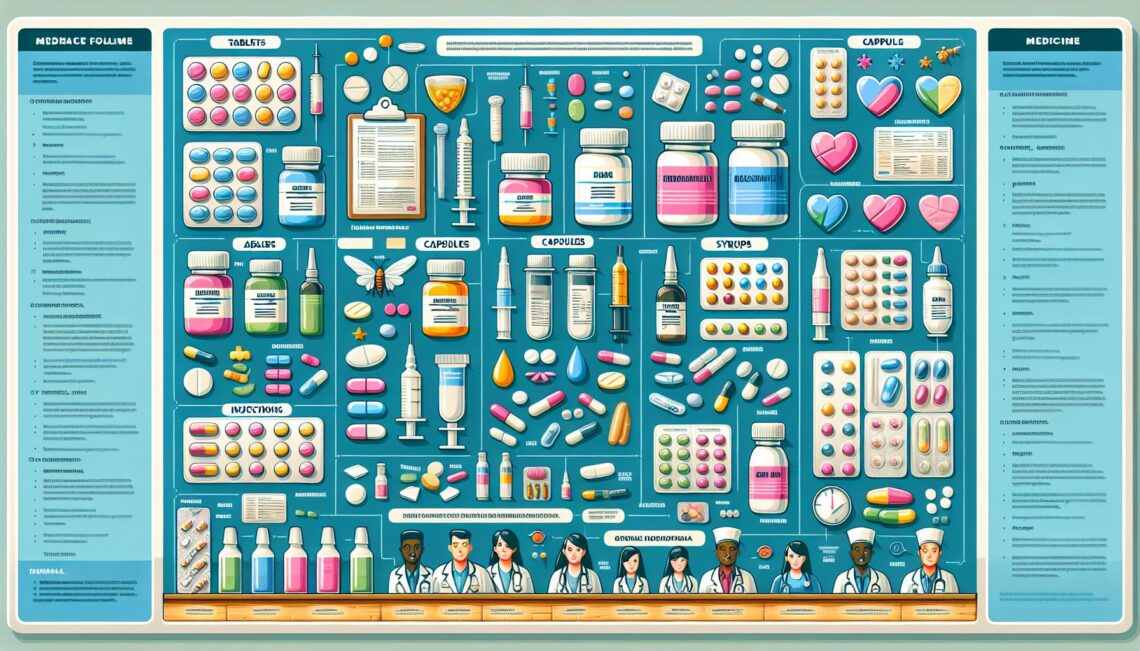
Understanding Different Types of Medicines
Medications play a vital role in maintaining good health and treating various illnesses. With numerous medications available on the market, understanding the different types of medicines can help you make informed decisions about your health. In this article, we will explore the various categories of medicines and how they work to improve our well-being.
Types of Medicines
1. Over-the-counter (OTC) Medicines
OTC medicines are available without a prescription and can be purchased directly from pharmacies or supermarkets. These medications are intended for the treatment of minor health conditions, such as headaches, common colds, and allergies. OTC medicines are generally safe when used as directed, but it is essential to follow the recommended dosage and seek medical advice if symptoms persist or worsen.
2. Prescription Medicines
Prescription medicines, also known as prescription drugs, require a healthcare professional’s prescription. These medications are often used to treat more severe or complex health conditions that require specialized knowledge for safe and effective usage. Prescription medicines include antibiotics, antidepressants, painkillers, and medications for chronic conditions like diabetes and hypertension. It is crucial to follow the prescribed dosage and complete the full course as directed by the healthcare provider.
3. Complementary and Alternative Medicines (CAMs)
Complementary and alternative medicines encompass a wide range of therapies, practices, and products that are not typically considered part of conventional medicine. These include herbal remedies, traditional Chinese medicine, acupuncture, chiropractic treatments, and homeopathy. CAMs are often used as adjuncts to conventional medicine or by individuals seeking more natural approaches to health and healing. While some CAMs have demonstrated positive effects, it is essential to consult with a healthcare provider before initiating any complementary or alternative treatments.
4. Vaccines
Vaccines are biological substances that stimulate immunity to protect against certain diseases. They contain weakened or inactivated viruses or bacteria, or specific components of them, that trigger an immune response without causing the actual disease. Vaccines have been instrumental in preventing the spread of infectious diseases, such as measles, polio, and influenza. They are typically administered through injections or, in some cases, orally. Vaccination can be a critical component of public health initiatives, safeguarding individuals and communities from the risk of diseases.
5. Topical Medicines
Topical medicines are applied externally to the skin or mucous membranes to provide localized treatment for a variety of conditions. They include creams, ointments, gels, lotions, and patches. Topical medicines are commonly used to relieve pain, reduce inflammation, treat skin disorders, and administer hormone replacement therapies. It is essential to follow the instructions carefully, apply the recommended quantity, and avoid using topical medications on broken or infected skin without appropriate medical advice.
Conclusion
Understanding the different types of medicines is crucial for responsible and informed healthcare decision-making. Always consult with a healthcare professional or pharmacist to ensure the safe and effective use of medications. Whether it’s over-the-counter medicines, prescription drugs, complementary therapies, vaccines, or topical treatments, each category serves a unique purpose in treating and preventing different health conditions. Your healthcare provider can guide you towards the appropriate type of medicine for your specific needs, helping you maintain a healthy and active lifestyle.
You May Also Like

Understanding the Different Types of Medicines
December 12, 2023
Exploring the Different Types of Medicines
April 11, 2024

